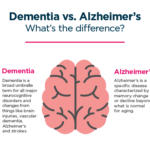Key Takeaways
- Cyberchondria involves excessive online health searches leading to increased anxiety.
- It is different from traditional hypochondria as it is driven by internet usage.
- Symptoms include compulsive checking of health information and heightened anxiety.
- Causes include internet addiction, personality traits, and misleading online information.
- Management strategies involve cognitive behavioral techniques and limiting internet use.
Cyberchondria: A Growing Concern in the Digital Age
In today’s world, where information is just a click away, many people find themselves obsessively searching the internet for health-related information. This behavior, known as cyberchondria, has become a growing concern. It’s more than just curiosity; it’s a cycle of anxiety and stress that can significantly impact one’s mental health.
What Defines Cyberchondria?
Cyberchondria is characterized by the excessive and repeated online search for medical information, which often leads to increased health anxiety. Unlike a casual search for health tips or understanding a diagnosis, cyberchondria involves compulsive behavior that fuels worry and distress. It’s as if the more you search, the more anxious you become.
The Impact of Internet Searches on Health Anxiety
The internet is a vast source of information, but not all of it is reliable. When someone with cyberchondria searches for symptoms, they might stumble upon worst-case scenarios or misleading information. This can amplify their anxiety, leading them to believe they have a serious illness. This cycle of searching and worrying can become a significant burden, affecting daily life and mental well-being.
How Cyberchondria Differs from Traditional Hypochondria
While both cyberchondria and traditional hypochondria involve excessive worry about health, the key difference lies in the source of information. Traditional hypochondria is based on personal interpretations of bodily sensations, whereas cyberchondria is driven by online searches. This reliance on the internet makes cyberchondria unique and often more pervasive, as the information is constantly accessible.
Identifying Symptoms of Cyberchondria
Recognizing the symptoms of cyberchondria is the first step towards managing it. It’s important to understand that these symptoms can manifest in various ways, affecting both behavior and emotions.
Checklist of Common Behavioral Symptoms
Individuals with cyberchondria often exhibit certain behavioral patterns. These include:
- Frequent and repetitive searches for health information online.
- Inability to stop searching despite reassurance from healthcare professionals.
- Checking multiple sources to verify health information.
- Spending excessive time reading about diseases and symptoms.
Emotional & Psychological Effects
The emotional toll of cyberchondria can be significant. People may experience heightened anxiety, constant worry about their health, and even depression. This emotional distress can lead to a decrease in quality of life, as the individual becomes consumed by their fears. For those struggling, exploring mental health crisis solutions can provide valuable support and strategies to cope with these challenges.
Recognizing Physical Manifestations Related to Cyberchondria
Although cyberchondria is primarily a mental health issue, it can have physical manifestations. Stress and anxiety can lead to symptoms such as headaches, fatigue, and muscle tension. These physical symptoms can then fuel further anxiety, creating a vicious cycle.
Understanding the Causes of Cyberchondria
Cyberchondria doesn’t develop in isolation. Several factors contribute to its onset and persistence. Understanding these causes can help in addressing and managing the condition effectively. Let’s delve into some of the key factors that play a role in the development of cyberchondria.
The Role of the Internet and Social Media
The internet, with its endless supply of information, is a double-edged sword. On one hand, it provides valuable health information. On the other hand, it can overwhelm individuals with too much information, some of which may be inaccurate or misleading. Social media platforms amplify this effect by spreading health myths and fears rapidly. This constant barrage of information can lead individuals to become more anxious about their health, fueling the cycle of cyberchondria.
Personality Traits and Psychological Factors
Some personality traits can make individuals more susceptible to cyberchondria. For instance, people who have high levels of anxiety or are prone to obsessive-compulsive tendencies may be more likely to engage in compulsive health searches. Additionally, those with low self-esteem or a heightened sensitivity to bodily sensations may also be more vulnerable. These psychological factors can exacerbate the anxiety experienced during health-related searches.
It’s also important to consider the role of past experiences. Individuals who have had a traumatic health experience, either personally or with a loved one, may be more inclined to develop cyberchondria. This fear of recurrence can drive them to constantly seek reassurance through online health searches. For those experiencing anxiety related to health concerns, exploring post-COVID lockdown anxiety solutions might offer helpful strategies.
Impact of Misleading Online Information
Not all information found online is accurate or reliable. Misleading or sensationalized health content can easily cause panic. For example, a simple headache can be interpreted as a symptom of a serious condition like a brain tumor when viewed through the lens of alarming online articles. This misinterpretation can lead to unnecessary worry and stress. To combat this, consider learning about cyber security awareness tips to better evaluate the credibility of online information.
“I once read an article that said a persistent cough could be a sign of lung cancer. I had a cough that lasted a few weeks, and despite knowing it was likely just a cold, I couldn’t shake the fear. I spent hours online, searching for more information, which only made my anxiety worse.”
To avoid falling into this trap, it’s crucial to critically evaluate the sources of information. Websites that lack credibility or are not backed by scientific research should be approached with caution. Always cross-reference information with reputable sources such as official health organizations or peer-reviewed medical journals.
Effective Solutions and Management Strategies
Managing cyberchondria involves a combination of behavioral changes and psychological interventions. By adopting effective strategies, individuals can regain control over their health anxieties and reduce the impact of cyberchondria on their lives.
Let’s explore some practical solutions that can help in managing this condition, especially in the context of post-COVID lockdown anxiety solutions:
Limiting Internet Time for Health Searches
One of the simplest yet most effective strategies is to set boundaries on the amount of time spent searching for health information online. Designate specific times during the day for health-related searches, and stick to these limits. This can prevent the behavior from becoming compulsive and reduce anxiety levels.
Cognitive Behavioral Techniques
Cognitive Behavioral Therapy (CBT) is a proven approach for managing anxiety disorders, including cyberchondria. It involves identifying and challenging irrational thoughts and beliefs related to health. By reframing these thoughts, individuals can reduce their anxiety and develop healthier coping mechanisms. Techniques such as mindfulness and relaxation exercises can also be incorporated to manage stress and anxiety more effectively.
Professional Therapy Options
In some cases, seeking professional help may be necessary. Therapists who specialize in anxiety disorders can provide personalized strategies and support. They can guide individuals through CBT or other therapeutic approaches tailored to their specific needs. Group therapy can also be beneficial, as it provides a supportive environment where individuals can share experiences and learn from others facing similar challenges.
It’s important to remember that seeking help is a sign of strength, not weakness. Professional guidance can make a significant difference in overcoming cyberchondria and improving overall mental health. For those dealing with anxiety post-pandemic, exploring post-COVID lockdown anxiety solutions can also be beneficial.
Utilizing Reliable Health Information Sources
When searching for health information, it’s crucial to rely on credible sources. Reputable websites, such as those of government health departments, universities, or established medical institutions, provide accurate and up-to-date information. Additionally, consulting with healthcare professionals can offer reassurance and clarify any doubts or concerns.
By being mindful of the sources of information and adopting healthy search habits, individuals can reduce the risk of falling into the trap of cyberchondria. Remember, it’s always best to consult with a healthcare professional for any medical concerns rather than relying solely on internet searches.
Concluding Thoughts on Managing Cyberchondria
Cyberchondria is a modern challenge that many people face due to the vast amount of information available online. It’s important to recognize that while seeking knowledge about health is beneficial, it can become harmful when it leads to excessive worry and anxiety. By understanding the symptoms, causes, and solutions, individuals can take proactive steps to manage their health anxieties effectively.
Encouraging Balanced Information Consumption
To combat cyberchondria, it’s crucial to maintain a balanced approach to consuming health information. This means setting limits on online searches and being selective about the sources you trust. Remember, not everything you read online is accurate or applicable to your situation.
Additionally, engaging in activities that promote relaxation and stress reduction can help manage the anxiety associated with cyberchondria. Techniques such as mindfulness, yoga, or simply taking a walk can provide much-needed mental relief.
Final Recommendations for Reducing Health Anxiety
Here are some actionable steps you can take to reduce health anxiety:
- Limit your time spent searching for health information online.
- Consult healthcare professionals for accurate diagnoses and advice.
- Engage in regular physical activity to improve overall well-being.
- Practice mindfulness or meditation to manage stress and anxiety.
- Seek professional help if you find it difficult to manage anxiety on your own.
By following these recommendations, you can take control of your mental health and reduce the impact of cyberchondria on your life.
Frequently Asked Questions (FAQ)
Many people have questions about cyberchondria and how to manage it. Here are some common inquiries and their answers to help guide you:
What Should I Do If I Suspect I Have Cyberchondria?
If you suspect you have cyberchondria, the first step is to acknowledge it. Reflect on your internet usage patterns and consider whether your searches are leading to increased anxiety. Then, take action by implementing strategies such as setting search limits, focusing on reliable sources, and seeking professional guidance if needed.
Is Cyberchondria Recognized as a Medical Condition?
Cyberchondria is not officially classified as a medical condition, but it is widely recognized as a behavioral pattern associated with health anxiety. Mental health professionals are increasingly aware of its impact and can provide support and treatment for those affected.
While it may not have its own diagnosis, the symptoms and consequences are real and should be addressed with the same seriousness as other anxiety-related conditions.
How Can I Find Reliable Health Information Online?
To find reliable health information, start by visiting websites of reputable organizations such as the World Health Organization (WHO), Centers for Disease Control and Prevention (CDC), or National Institutes of Health (NIH). These sources provide evidence-based information that is reviewed by medical experts.
Can Cyberchondria Affect Physical Health?
Yes, cyberchondria can have physical effects due to the stress and anxiety it causes. Common symptoms include headaches, fatigue, and muscle tension. Over time, chronic stress can impact overall health, making it essential to address both the mental and physical aspects of cyberchondria.
What Are the Next Steps After Recognizing Cyberchondria Symptoms?
- Assess your internet usage and identify patterns of excessive searching.
- Set specific limits on the time you spend looking up health information.
- Focus on credible sources and avoid sensationalized content.
- Incorporate stress-reduction techniques into your daily routine.
- Seek professional support if self-management strategies are insufficient.
Recognizing cyberchondria is the first step towards managing it effectively. By taking proactive measures, you can reduce anxiety and improve your overall mental health. Remember, the goal is to achieve a balanced approach to health information that empowers rather than overwhelms you.
Free Press Release Daily & Weekly Roundup
Your #1 Source for Breaking | Break Out | Trending | Viral Broadcasts

















